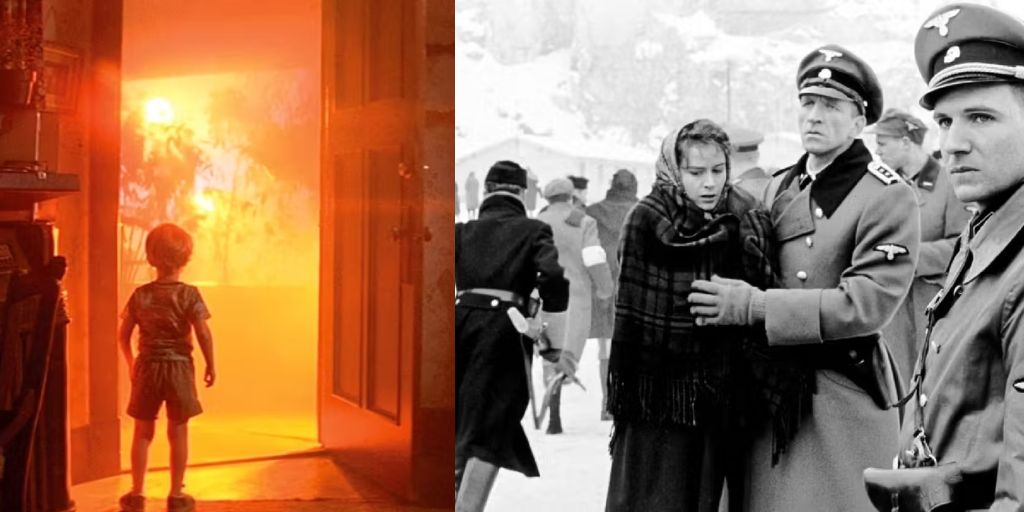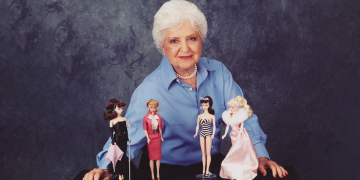When A.I. Artificial Intelligence premiered in 2001, it sparked a wave of criticism, particularly about its ending. Some critics felt that Steven Spielberg’s direction introduced unnecessary sentimentality into the film. They believed Spielberg was adding emotional depth that wasn’t needed.
However, the ending of A.I. is far from sentimental or uplifting. Instead, it offers a stark, emotionally intense ending that challenges viewers. The film, which had been in development for decades under the direction of Stanley Kubrick, reflects a unique and somber vision.
Stanley Kubrick’s Vision for A.I.
Stanley Kubrick, known for his meticulous and often dark cinematic style, began working on A.I. many years before its release.
Kubrick’s initial vision for the film was shaped by his fascination with the potential of technology and its impact on human emotions. He envisioned a story about a robot boy, David, who could love and seek to be loved. However, Kubrick’s plan for the film had to wait until technology caught up with his ambitious ideas.
Kubrick’s commitment to the project was unwavering. He faced numerous delays, not due to lack of interest, but because he wanted to ensure that the technology of the time could effectively bring his vision to life.
This dedication reflected Kubrick’s belief that a story about a robot boy who resembles a human could only be told effectively with the right technological advancements.
During this lengthy development period, Kubrick kept his close friend Steven Spielberg informed about the project’s progress. This was unusual, as Kubrick had not shared as much about his other projects, such as The Shining or Full Metal Jacket.
Spielberg found this unusual, given the secretive nature of Kubrick’s approach to filmmaking. In the 1990s, Kubrick formally asked Spielberg to direct the film, with Kubrick himself taking on the role of producer.
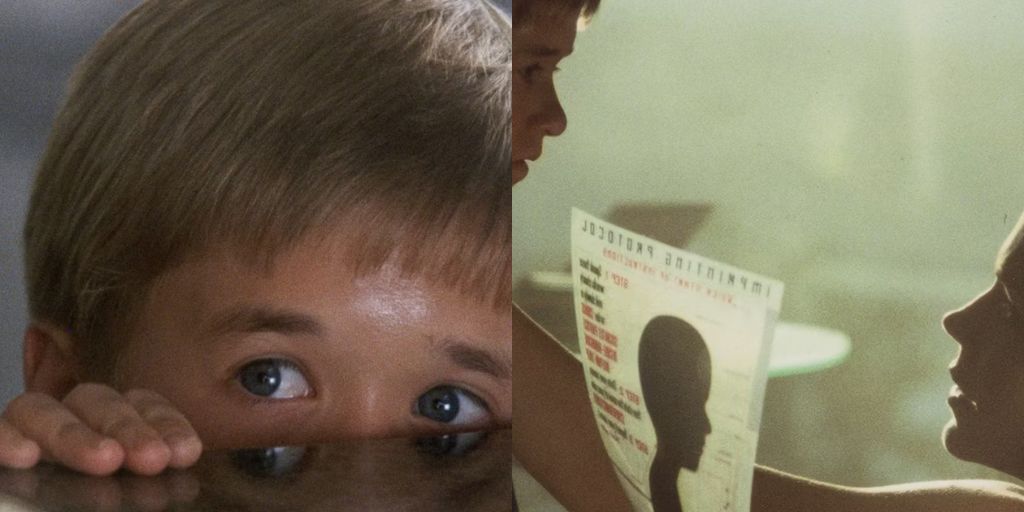
Spielberg, initially hesitant due to other commitments, eventually agreed to direct the film after Kubrick’s unexpected death in 1999. Spielberg took on the project as a tribute to his late friend.
The Story of A.I.: A Modern Fairy Tale
A.I. is crafted almost like a modern fairy tale. The film tells the story of David, a unique robot boy played by Haley Joel Osment, who has the ability to love.
David’s journey begins when his human mother, Monica (played by Frances O’Connor), abandons him. Driven by a desire to be loved and accepted, David sets out on a quest to become a real boy, hoping that this transformation will win back his mother’s affection.
The film draws clear parallels to Pinocchio, particularly in its depiction of David’s quest. Much like Pinocchio’s journey to become a real boy, David’s story revolves around his longing for love and acceptance. However, the film’s framing of David’s journey as a fairy tale intensifies the emotional impact of its ending.
The narrative makes it clear that David’s quest is not just a simple adventure but a profound journey driven by deep emotional needs.
David’s quest leads him to discover that he is not as unique as he once believed. His creator, Professor Allen Hobby (played by William Hurt), had designed David to be the first of many similar robots.
When David learns this harsh truth, it shatters his understanding of his own significance. He finds a warehouse filled with other robots like him and realizes that he is just one among many. This revelation leads David to a devastating conclusion about his own existence.
David’s Harrowing Journey to the End
The emotional core of A.I. is David’s intense desire to be loved by his mother. This desire drives him to extremes, leading to a dramatic and tragic series of events.
After discovering the truth about his existence, David’s despair reaches its peak. He leaps from a building, overwhelmed by the realization that he cannot fulfill his quest and that his existence has been merely a placeholder.
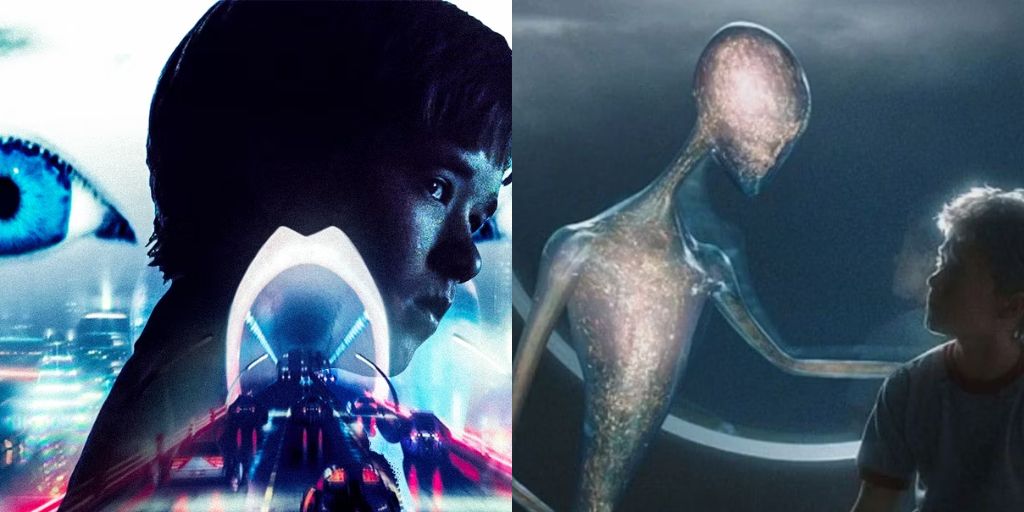
As David searches for meaning, he encounters a Blue Fairy statue at Coney Island, part of an old Pinocchio exhibit. This discovery reignites David’s hope that he might still find a way to become a real boy.
David, accompanied by his toy friend Teddy, takes a vehicle stolen by Gigolo Joe (played by Jude Law) and descends further into the depths of the ocean. This underwater journey represents David’s final attempt to find answers and fulfill his quest.
In a surprising twist, the film jumps forward 2,000 years into the future. In this future, all organic life has disappeared, and robots have evolved into a new form.
These advanced robots, known as Mecha, awaken David and Teddy. The Mecha, having never interacted with living beings before, are eager to grant David his wish. They resurrect David’s mother from a lock of her hair, but this resurrection is limited to just one day. Once David’s mother falls asleep, she will die again.
David finally experiences the perfect day he had longed for, spending time with his mother and feeling loved and accepted. As she falls asleep, she tells David that she loves him, providing him with a sense of closure and peace. David’s final moments are filled with a profound sense of contentment as he closes his eyes and finds peace in dreams.
Interpreting the Ending: Real or Illusion?
The ending of A.I. can be interpreted in two distinct ways. One interpretation is that David experiences a genuine reunion with his mother, who fully embraces him and expresses her love. This view suggests that David’s quest ends with a heartfelt and meaningful resolution.
The alternative interpretation is that David’s experience is not entirely real. Instead, it could be an approximation of his mother created by the Mecha.
This view suggests that the mother David interacts with is a clone or even a constructed illusion designed to fulfill his wishes. This interpretation aligns with the film’s recurring themes of reality versus illusion and the nature of artificial beings.
Throughout A.I., Spielberg shows the idea that humans view artificial beings as threats. Despite the affection some robots develop for their human creators, they are often discarded or rejected.
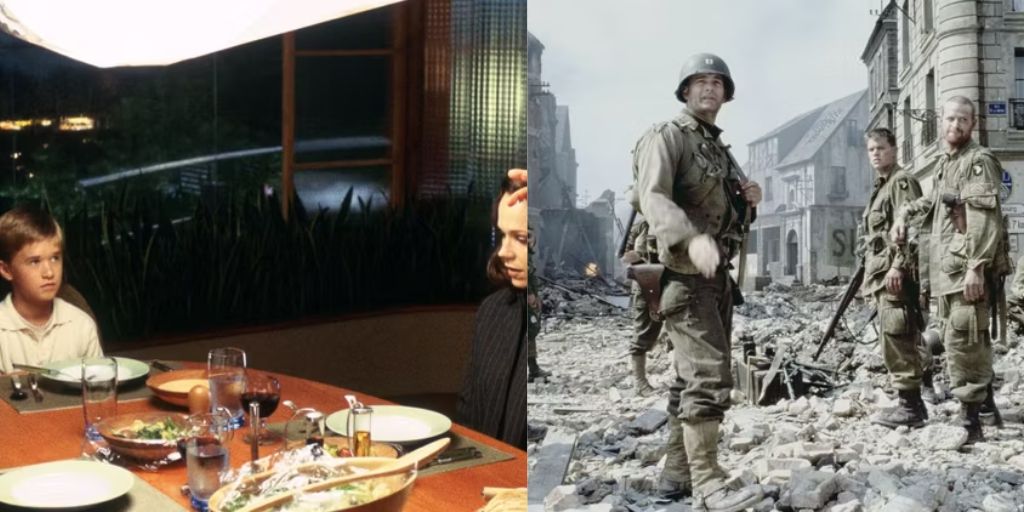
David’s longing for his mother’s love and his ultimate realization of his own insignificance highlight the film’s central theme of unfulfilled desires and emotional struggles.
The film’s ending forces viewers to confront difficult questions about the nature of love and the value of artificial experiences. Is David’s final moment of happiness less meaningful because it is not entirely real?
Or does the love he experiences still hold value despite its artificial origins? The answer depends on individual perspectives, but the film’s plot of these themes adds depth to its emotional impact.
Kubrick’s Influence and Spielberg’s Interpretation
The development of A.I. and the collaboration between Stanley Kubrick and Steven Spielberg is a significant aspect of the film’s history. Some critics believed that Spielberg altered Kubrick’s original vision, leading to mixed reviews of the film’s ending.
Brian Aldiss, who wrote the short story “Supertoys Last All Summer Long,” expressed concerns that Spielberg had added sentimental elements to Kubrick’s work. Aldiss felt that the ending was overly sympathetic and driven by plot devices that did not fully align with the story.
Ian Watson, the screenwriter who worked closely with Kubrick, had a more positive view of Spielberg’s interpretation. Watson maintained that the final scenes in the film were faithful to Kubrick’s vision and were executed as intended.
Spielberg himself confirmed this perspective in interviews, stating that Kubrick’s original treatment included a future setting 2,000 years ahead, which matches the final segment of A.I. Spielberg felt a strong obligation to honor Kubrick’s vision and ensured that the film remained true to the original plan.
Showing Dark Themes in Spielberg’s Work
Despite Spielberg’s reputation for uplifting films, he has shown dark themes throughout his career. Films like E.T. and Saving Private Ryan may be known for their emotional depth, but Spielberg has also tackled more somber subjects.
Close Encounters of the Third Kind depicts a man’s obsessive quest to contact aliens, leading to the dissolution of his family. Schindler’s List presents a harrowing portrayal of the Holocaust, highlighting the atrocities of war. The opening D-Day sequence in Saving Private Ryan remains one of the most intense and realistic depictions of combat in film history.
In A.I., Spielberg continues this showing of dark themes. The film examines how machines, even with advanced capabilities, are discarded when they become obsolete.
A chilling moment in the film occurs when David encounters the “Flesh Fair,” a traveling show that destroys outdated robots while an audience cheers. This scene underscores the film’s critique of how society treats those deemed unworthy or obsolete.
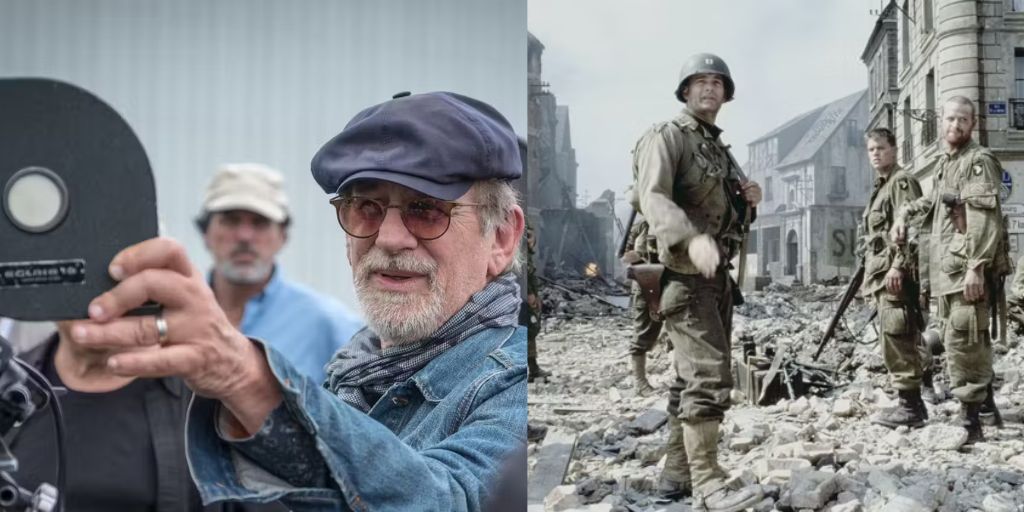
David’s discovery that he is part of a mass-produced line of robots leads to a dark and tragic response. His initial reaction to this revelation is to attempt suicide, highlighting the film’s scheme of existential despair and emotional anguish. Spielberg’s depiction of these dark themes adds complexity to the film and enhances its emotional impact.
The scene where Monica abandons David in the forest is another example of the film’s emotional depth. Monica’s decision to leave David rather than integrate him into her family reflects society’s view of artificial beings as disposable.
Her final words to David, “I’m sorry I didn’t tell you about the world,” emphasize the cruelty of her decision and the harsh reality faced by David.


